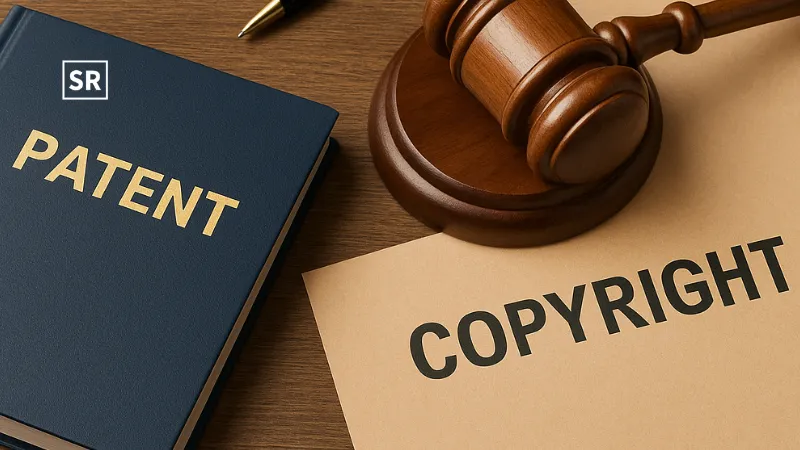What Every Startup Should Know Before Shipping to Europe and How to Keep Costs Down
Oct 17, 2025 | By Team SR

For startups looking to expand internationally, Europe is often an attractive market due to its vast customer base and established trade networks. However, shipping goods across borders can be daunting. From dealing with customs paperwork to understanding tax obligations, businesses must navigate a complex web of regulations. Getting these steps wrong can result in delays, fines, or damaged customer relationships, significantly impacting profitability.
One key issue is ensuring compliance with European Union (EU) import regulations. Post-Brexit changes have made it essential for UK-based startups to maintain accurate customs documentation when shipping goods. Additionally, understanding tariffs, duties, and value-added tax (VAT) obligations is crucial to avoid unnecessary costs. Neglecting these aspects can lead to unanticipated delays, hindering business operations.
Common Pitfalls Startups Face When Shipping Internationally
Lack of Proper Documentation
Incorrect or incomplete documentation is one of the primary reasons for shipment delays. For instance, a commercial invoice must include detailed product descriptions, accurate valuations, and correct commodity codes to ensure swift customs clearance. Startups often overlook these finer details, risking costly hold-ups at European ports.
Consolidation Inefficiencies
Shipping small volumes can be expensive if goods are not consolidated effectively. Groupage services, where shipments are combined into a single load with other customers' goods, are a cost-effective way to optimise logistics. However, poor planning or misalignment with transport schedules can lead to underutilised capacity and higher expenses.
RECOMMENDED FOR YOU

Mykhailo Kopyl: What I Learned From Building Software Products for 100+ Startups
Team SR
Nov 13, 2025
Unpredictable Customs Practices
While the EU operates under unified trade guidelines, individual countries may have specific import/export requirements. For example, labelling rules in France may differ from those in Germany. Startups often underestimate such nuances, leading to compliance issues and delays that could tarnish their business reputation.
How to Minimise Shipping Costs in Europe
Choose the Right Freight Option
Selecting the right freight service to Europe can make a significant difference to your costs. Full Truck Load (FTL) services are ideal if you’re shipping large volumes, whereas Less Than Truck Load (LTL) options, such as groupage, work well for smaller consignments. For startups with limited budgets, opting for groupage ensures you pay only for the space your goods occupy, reducing unnecessary expenditure.
Partner with Experienced Freight Forwarders
Collaborating with a reliable freight forwarder ensures smoother logistics. Professionals can assist with customs clearance, proper documentation, and offer comprehensive shipping solutions tailored to your needs. They can also guide you in selecting economical routes and methods for your freight to Europe.
Streamline Packaging Practices
Efficient packaging reduces both space and weight, directly impacting shipping costs. Avoid excess materials by using well-measured packaging tailored to your product dimensions. Leveraging stackable or pallet-friendly designs can also simplify the logistics process and cut down on expenses.
Cost-Saving Packaging Example
For instance, businesses shipping electronics often reduce costs by bundling items securely on pallets instead of shipping each item individually. This not only minimises the required space but also reduces handling risks.
Maximise Tax and Duty Savings
Take advantage of trade agreements and duty relief schemes to lower costs. For example, the UK-EU Trade and Cooperation Agreement allows qualifying goods to benefit from zero tariffs. Ensuring origin compliance and submitting appropriate certificates can help utilise these benefits fully.
FAQ: Answering Your Common Questions
What documentation is essential for shipping to Europe?
Key documents include a commercial invoice with proper HS codes, a packing list, and any certifications required for specific goods. Partnering with a seasoned freight forwarder can ensure paperwork accuracy, avoiding costly delays.
How can startups ensure on-time delivery?
Collaborate with logistics experts who offer groupage or FTL services that align with your supply chain schedule. This ensures minimal setbacks while optimising delivery speed.
Why is groupage a cost-effective shipping method?
Groupage consolidates smaller shipments from multiple customers into a single truckload, enabling startups to only pay for the space used. It’s an economical alternative to LTL for frequent small shipments.
What are some key considerations post-Brexit?
Compliance with EU’s import regulations, VAT adjustments, and ensuring accurate documentation are essential. Businesses should remain updated on any changing trade laws to avoid unexpected costs or customs issues.
By understanding the complexities of shipping to Europe and applying cost-saving measures, startups can expand their reach while safeguarding profitability. Selecting the right freight solution, partnering with experienced professionals, and streamlining operations are vital steps toward achieving seamless international growth.


 Follow us
Follow us Follow us
Follow us














